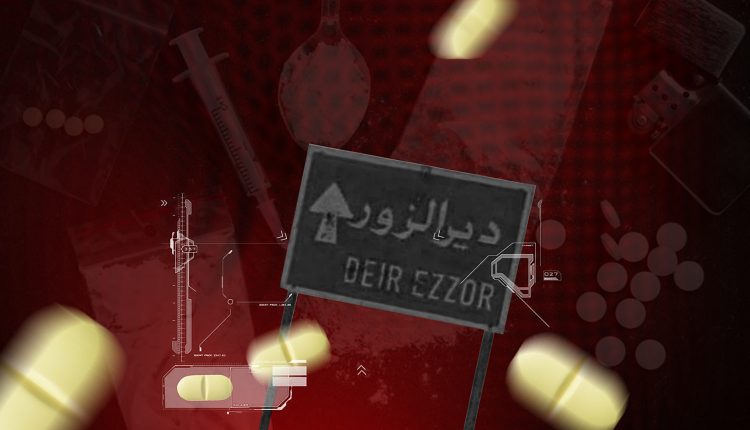As news of developments in Deir ez-Zor continues to emerge on a daily basis, one of the issues that has come to the fore is that of drugs. The comprehensive report published by the Rojava Information Center (RIC) also contains significant information on the drug problem. Mohammed Hassoun Al-Rajab, Co-Chair of the Deir Ezzor Civil Council, told RIC that being so close to regime-held areas creates difficulties due to disorder caused by drug trafficking.
Assad and Iranian militias linked to drug trade in Syria
According to the RIC report, both Assad and his family, as well as Iranian militias, are linked to the fast-growing Captagon production and trafficking industry in Syria. Fethi Al-Etesh, vice chair of the Presidency Commission in the Civil Council, tells the RIC that he is aware of 4 active drug factories on the west bank of the Euphrates in Deir ez-Zor. Al-Etesh continues: “One in Al-Mayadin, one in the village of Keriyya, one in Ghazi Ayash, and one in Al-Bukamal. They are Iranian factories and the income they generate is used to pay Iranian cells. Due to the soft borderline between us and the regime – the Euphrates River – it is easy for other parties to spread drugs in our region. No power could stop these security breaches. Actually, here there are not huge amounts of drugs coming, but we want this phenomenon to be totally eliminated.” Al-Atash underlines that they want the factories to be destroyed.
The vice chair adds that even in Damascus, there is a factory owned by the former defense minister to produce canned food, which is involved in drug production: “So the regime also benefits from this industry, not just the Iranian militias. It does not produce anything for its economy; it depends on drugs.”
Anti-drug units established by the SDF
Additionally, Abd Al-Rzaaq Al-Raheem, the vice co-chair of the Civil Council tells RIC that the spreading of drugs will destroy a whole generation: “The drugs in Deir ez-Zor are not a joke. Out of every 4 young people, 3 are into drugs. The length of the borderline with the Syrian government is 250 kilometers, so it is hard to cover and secure that distance. We also need rehabilitation centers for those who are addicted, so they can recover and not make an impact on other people.” Al-Etesh states that the anti-drug units set up by the SDF in each region have reduced the amount of drugs in their area. He adds that many people who used to live on the other side of the Euphrates, which is controlled by the Syrian government, have moved to the eastern side as a result of poverty and corruption. According to Al-Etesh, this has led to the establishment of camps for internally displaced persons and refugees in the countryside.

